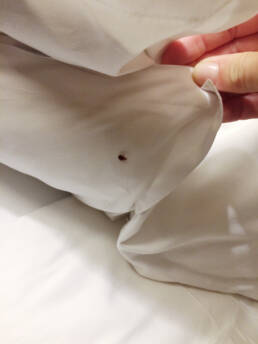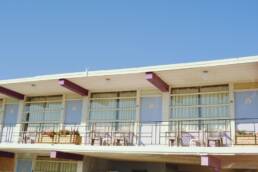As a landlord, maintaining your rental properties is more than just keeping up with repairs and ensuring everything runs smoothly. A significant yet often overlooked aspect is managing and preventing pest infestations—particularly bed bugs. These resilient pests can quickly turn into a nightmare if not handled correctly, and the stigma associated with them can make open communication between you and your tenants challenging.
However, by fostering a proactive approach and educating your tenants, you can effectively manage bed bug situations while keeping your rental properties in top shape.
The Importance of Open Communication
One of the most critical steps in managing bed bugs is fostering an environment where tenants feel comfortable reporting potential infestations. Bed bugs carry a significant stigma, often causing embarrassment or fear among tenants. Many worry that reporting a bed bug problem will lead to undesirable consequences—like increased rent, eviction, or even a tarnished reputation among neighbors. This fear can lead to delayed reporting, which is detrimental to both the tenant and the landlord.
Delayed reporting can turn what might have been a manageable situation into a full-blown infestation that spreads beyond the initial unit. Bed bugs are incredibly resilient and can quickly move through walls, electrical outlets, and even plumbing, infesting multiple units in a short amount of time. The longer the problem goes unreported, the more extensive—and expensive—the treatment will be. It can also lead to disgruntled tenants, property damage, and a damaged reputation for the landlord.
To prevent these issues, landlords must create a culture of transparency and trust. Begin by communicating clearly with your tenants that their health and comfort are your top priorities. Let them know that reporting a bed bug problem will not result in punitive measures, such as rent increases or eviction threats. Instead, emphasize that early detection and reporting are key to resolving the issue swiftly and efficiently.
Consider implementing a tenant communication plan specifically for pest-related concerns. This plan could include:
- Regular Reminders: Periodically remind tenants, through newsletters or community meetings, about the importance of reporting pest issues promptly. Reinforce that there is no shame in reporting a problem and that swift action benefits everyone in the building.
- Clear Reporting Channels: Make it easy for tenants to report bed bugs or other pests by providing multiple communication channels, such as an online portal, dedicated email, or hotline. Ensure that these channels are discreet and accessible.
- Anonymous Reporting Options: While you want to encourage open communication, offering an anonymous reporting option can help tenants who are particularly embarrassed or fearful. This can help you catch issues that might otherwise go unreported.
In addition to creating open communication channels, consider how you respond to reports. Acknowledge tenant concerns promptly and express appreciation for their proactive approach. Reassure them that their report will be handled with care and confidentiality. The goal is to build a relationship of trust where tenants know that their well-being is valued and that they can rely on you to take action when needed.
Moreover, it’s essential to follow up after an infestation has been reported and treated. Keep the tenant informed throughout the process, and provide updates on the steps being taken to address the issue. This not only reassures the tenant but also demonstrates your commitment to maintaining a healthy living environment.
By fostering a culture of open communication, you can prevent bed bug issues from spiraling out of control and maintain a positive relationship with your tenants. Early reporting allows you to address problems before they become unmanageable, saving both time and money in the long run. Additionally, it shows tenants that you are a responsible and caring landlord, which can enhance tenant retention and reduce turnover.
In summary, open communication is the cornerstone of effective bed bug management. By reassuring your tenants that reporting is in their best interest and by making the process as easy and non-threatening as possible, you create a win-win situation that benefits both parties. When tenants feel confident in their ability to report issues without fear, you’re better positioned to protect your properties and ensure a comfortable living environment for everyone.
Educating Tenants on Bed Bug Prevention
When it comes to bed bugs, prevention is undoubtedly better than cure. As a landlord, you have the unique opportunity to educate your tenants on how they can protect themselves—and your property—from these persistent pests. Empowering tenants with the knowledge and tools to prevent bed bugs not only reduces the risk of infestations but also fosters a sense of responsibility and partnership in maintaining a healthy living environment.
The Importance of Tenant Education
Bed bugs are notoriously difficult to eradicate once they’ve established themselves in a home. Their ability to hide in tiny crevices and survive for long periods without feeding makes them a formidable opponent. However, with the right knowledge, tenants can take simple steps to prevent bed bugs from entering their homes in the first place. As a landlord, providing this education is a proactive measure that benefits everyone involved.
By educating your tenants, you help them understand that bed bugs are not just a nuisance but a potential threat to their comfort and well-being. You also dispel common myths and misconceptions—such as the belief that bed bugs only infest dirty homes—by emphasizing that anyone can fall victim to these pests, regardless of their cleanliness.
Practical Tips for Bed Bug Prevention
To effectively educate your tenants, provide them with clear, practical advice on how to prevent bed bugs from entering their homes. Here are some essential tips to share:
- Inspect Second-Hand Furniture: One of the most common ways bed bugs enter homes is through second-hand furniture, especially mattresses and upholstered items. Encourage your tenants to thoroughly inspect any used furniture before bringing it into their units. This includes checking seams, crevices, and undersides for any signs of bed bugs, such as small brown spots or the insects themselves. It’s also wise to suggest avoiding second-hand mattresses altogether, as they pose a higher risk.
- Be Cautious When Traveling: Bed bugs are notorious travelers and can easily hitch a ride on luggage, clothing, and other personal items. Advise your tenants to be vigilant when staying in hotels, motels, or other accommodations. They should inspect the mattress, headboard, and furniture in their room for signs of bed bugs. Upon returning home, tenants should immediately wash and dry their clothes on high heat and inspect their luggage before storing it away.
- Regular Cleaning and Decluttering: Bed bugs thrive in cluttered environments where they can easily hide. Encourage your tenants to keep their living spaces clean and clutter-free. Regular vacuuming, especially in bedrooms and living areas, can help remove any potential bed bugs or eggs that might have been brought in. Suggest that tenants pay particular attention to the areas around beds, furniture, and baseboards.
- Mattress and Box Spring Encasements: Encasements can incapsulate bed bugs and their eggs on the mattress and box springs. However, they won’t eliminate outlying bed bugs or their eggs. Encasements can offer peace of mind by putting a barrier between you and bed bug fecal matter. They can also make it easier to find new bed bug activity while doing post inspections after treatment.
- Minimize the Risk of Bed Bug Spread: If tenants live in a multi-unit building, they should be aware that bed bugs can easily spread from one unit to another. Educate them on the importance of reporting any potential signs of bed bugs immediately, as early detection can prevent the infestation from spreading to other units.
Providing Educational Resources
In addition to sharing these tips, consider providing tenants with educational materials, such as pamphlets, flyers, or even links to online resources that cover bed bug prevention. You might also hold occasional informational sessions or include bed bug prevention tips in your tenant newsletters. The goal is to ensure that tenants have easy access to the information they need to protect themselves and your property.
Encouraging a Culture of Prevention
Education alone isn’t enough; you need to encourage a culture of prevention within your properties. This means consistently reinforcing the importance of these preventative measures and reminding tenants that their actions can significantly impact the community as a whole. By promoting a shared responsibility for maintaining a pest-free environment, you help create a community that is vigilant and proactive in preventing bed bug infestations.
The Benefits of Educated Tenants
Educating your tenants about bed bug prevention is not just a precautionary measure—it’s an investment in the long-term health and profitability of your property. When tenants are well-informed about how to prevent, identify, and respond to bed bugs, they become active participants in maintaining a safe and comfortable living environment. The benefits of this education extend far beyond the immediate reduction of pest risks, creating a ripple effect that positively impacts both tenants and landlords.
Reduced Stress and Discomfort for Tenants
Bed bug infestations can be a source of significant stress and discomfort for tenants. The psychological toll of dealing with these pests—coupled with the physical discomfort from bites—can lead to sleepless nights, anxiety, and even embarrassment. Educated tenants are better equipped to take preventative measures and recognize the early signs of an infestation, which means they are less likely to experience the full brunt of a bed bug problem.
By providing your tenants with the knowledge they need to prevent infestations, you help them avoid the distress associated with bed bugs. This contributes to a higher level of tenant satisfaction, as they feel more secure and cared for in their living environment. Satisfied tenants are more likely to renew their leases, reducing turnover and ensuring stable occupancy rates.
Cost Savings and Operational Efficiency for Landlords
From a landlord’s perspective, bed bug infestations can be costly and time-consuming to resolve. The expense of professional extermination services, coupled with the potential need for multiple treatments and tenant accommodations, can quickly add up. In severe cases, infestations may even require the temporary relocation of tenants or the replacement of infested furniture, further increasing costs.
Educating your tenants on bed bug prevention significantly reduces the likelihood of these scenarios. When tenants understand how to prevent infestations and report problems early, you can address issues before they escalate into full-blown infestations. This proactive approach minimizes the need for extensive and costly extermination efforts, saving you both time and money.
Additionally, an educated tenant base contributes to operational efficiency. Early reporting allows you to coordinate treatments more effectively, reducing downtime and disruption to your property’s operations. This means fewer complaints from tenants and a smoother management process overall.
Early Detection and Prompt Action
One of the most significant benefits of tenant education is the increased likelihood of early detection. Educated tenants are more likely to recognize the signs of bed bugs and report them promptly, allowing for swift intervention. Early detection is critical in controlling the spread of bed bugs, particularly in multi-unit buildings where an infestation in one unit can quickly spread to others.
By encouraging tenants to report potential infestations as soon as they notice any signs, you can take immediate action to contain and eliminate the problem. This not only prevents the infestation from spreading but also reduces the severity of the issue, making it easier and less expensive to treat.
Early detection also helps preserve the condition of your property. Bed bugs can cause damage to furniture, mattresses, and other belongings, leading to potential replacement costs. By catching infestations early, you can protect your property’s assets and avoid the need for costly replacements.
Building a Stronger Landlord-Tenant Relationship
Educating your tenants about bed bug prevention also strengthens the relationship between you and your tenants. When tenants see that you are invested in their well-being and proactive in addressing potential issues, they are more likely to view you as a responsible and caring landlord. This positive perception can lead to better communication, increased trust, and a more cooperative relationship.
Tenants who feel valued and respected are more likely to treat your property with care, follow the rules, and communicate openly about any concerns they may have. This creates a positive feedback loop where both parties work together to maintain a safe, clean, and comfortable living environment.
Moreover, a strong landlord-tenant relationship can enhance tenant retention. When tenants feel that their landlord is attentive and responsive to their needs, they are more likely to renew their leases and stay in the property long-term. This reduces turnover and vacancy rates, contributing to the overall stability and profitability of your rental business.
Enhancing Community Well-Being
Finally, educating tenants about bed bug prevention contributes to the overall well-being of the community. In multi-unit buildings, an infestation in one unit can quickly affect neighboring units, leading to widespread problems. By equipping all tenants with the knowledge to prevent and address bed bugs, you help create a safer and healthier living environment for everyone in the building.
A well-educated tenant community is more vigilant and proactive, reducing the likelihood of infestations and ensuring that any issues are dealt with promptly. This collective approach fosters a sense of shared responsibility and community pride, making your property a more desirable place to live.
Educating your tenants about bed bug prevention is a win-win situation for both tenants and landlords. Tenants benefit from reduced stress, greater comfort, and a more secure living environment, while landlords enjoy cost savings, operational efficiency, and stronger relationships with their tenants. Early detection, prompt action, and a sense of shared responsibility all contribute to a healthier, more harmonious community, ensuring that your property remains a safe and desirable place to live.
By prioritizing tenant education, you not only protect your investment but also create a living environment where tenants feel valued and empowered. It’s a proactive step that pays dividends in the long run, enhancing both tenant satisfaction and the overall success of your rental property.
Proactive Measures for Landlords
While tenant education is crucial, landlords also play a key role in preventing and managing bed bug infestations. Here are some steps you can take to be proactive:
- Regular Inspections: Schedule routine inspections of your rental properties, especially in multi-unit buildings. Early detection is critical in preventing the spread of bed bugs to other units.
- Implement Preventative Measures: Consider investing in mattress encasements, bed bug monitors, and other preventative tools that can help detect and deter infestations before they become widespread.
- Have a Response Plan: Work with a professional exterminator, like Hot Bugz, to develop a comprehensive bed bug response plan. This plan should include procedures for inspecting, treating, and following up on any reported infestations.
Why Partner with a Professional Exterminator
Bed bugs are notoriously difficult to eliminate, and DIY methods are often ineffective. Partnering with a professional exterminator ensures that infestations are handled correctly and thoroughly. Hot Bugz specializes in bed bug extermination in the Denver area, offering customized solutions to fit the unique needs of your properties. With expert knowledge and advanced treatment options, we can help you maintain a bed bug-free environment for your tenants.
By fostering open communication, educating your tenants, and taking proactive measures, you can effectively manage bed bug infestations in your rental properties. Remember, early detection and professional intervention are key to minimizing the impact of bed bugs. At Hot Bugz, we’re here to support you in keeping your properties pest-free and your tenants happy. Reach out to us today to learn more about our bed bug extermination services and how we can help you protect your investment.

Ready for an expert opinion? Get in touch today!
We kill bed bugs in the infested space and surrounding walls by heating the space to a temperature of 135°F, killing all bed bugs and their eggs. If you have a bed bug problem, we have a solution. Exterminate bed bugs today with Hot Bugz. It’s safe and you get to keep your stuff. Call us today for a free consultation.
Like this article? Spread the word!
Related Posts
October 10, 2023
5 Ways to Prevent Bed Bugs in a Multiunit Apartment Building
Protect your multiunit apartment building from bed bug infestations in Denver, CO. Learn…





